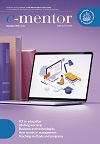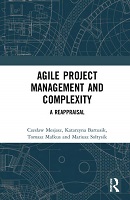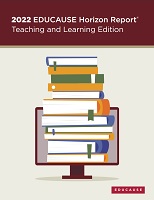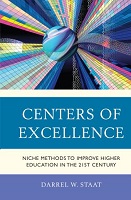Ukazał się nowy numer e-mentora. Zachęcamy do lektury.

Dear „e-mentor” readers,
I am pleased to share the newest collection of papers. The current volume is mainly focused on the issues regarding the development of students' skills and attitudes, which reflects the struggle of many universities to provide graduates with a comprehensive set of competencies to support them not only as specialists but also as global and conscious citizens. In this issue, you can learn about the level and determinants of cultural intelligence of students of public economics universities, the possibilities of improving intercultural pragmatic competencies during online Spanish classes, and business students' declared knowledge of and readiness to follow the principles of corporate social. Noteworthy is the international context of the presented studies, illustrated by the examples from Poland, Spain, and the US.
Interesting are also two articles discussing the possibilities of boosting creativity, both in education and business. The first concerns practical applications of visual bricolage as a tool for enhancing formative discussions with students, and the second regards the problem of co-creation with consumers in the fuzzy front-end of new product development. Moreover, you can read about the concept of virtual university, infographics in social media, and objectivity in evaluating professional career development.
In this issue, you can also find useful recommendations of the forthcoming events and the most recent publications, such as the review of the book "Disruptive platforms. Markets, ecosystems and monopolists" by T. Doligalski, M. Goliński, and K. Kozłowski. I do hope that "e-mentor" will bring you a nice time during this summer holidays.
Further, I would like to kindly invite you to co-create "e-mentor" with us and submit your articles for publication...
czytaj dalej »
Polecamy w nim szczególnie:
Since the beginning of the COVID-19 pandemic, digital transformation has significantly accelerated in many industries, including somewhat slow-changing higher education. The epidemic situation pushed students, faculties, and administrators to experiment to a much greater degree with online classes, digital cooperation, and virtual student services. For the majority of the academic community, this situation created a completely new reality. Indeed, the digital experience in higher education was for some community members quite challenging, if not traumatic. Fairly soon, however, the digital experiment proved successful in many areas. In some cases, even more effective than conservative practices. The Virtual University Concept (VUC) has been a topic of debate for quite some time, but only now has it found a receptive audience in all sectors of the academic community. In the following articles, the authors will attempt to conceptualize the virtual university as an innovative way to address contemporary challenges for Higher Education Institutions (HEI), specifically their ability to identify, create and capture value for students.
czytaj dalej »
The objective of this study is to present various practical applications of collage-based methods (visual bricolage) as a way of boosting creative discussions with students and helping them to express their knowledge and experience using visual representation. This viewpoint paper is based on the experience of twenty classes conducted with the MA program and postgraduate students at Kozminski University between March 2019 and December 2021, when online whiteboards and visual metaphors were used. The method used was participative observation, as the author also acted as the workshop facilitator. To observe the user’s action, the contribution tracking tool that is available on the mural whiteboard (Mural, n.d.) was activated. The explorations during the workshops revealed two elements of online classes: Conceptualization vs Illustration, to determine whether photos and pictures serve as an instrumental illustration in the background of the story, or they are important elements that convey the sense of the students’ statements. Moreover, the paper contains various practical findings that help to facilitate creative educational workshops remotely.
czytaj dalej »
An analysis of literature shows that higher education institutions can actively influence the development of students' cultural intelligence (CQ) and thus express their social responsibility. The article's main aim is to diagnose the level of cultural intelligence among students of public economics universities in Poland and to determine the relationship between CQ and factors such as field of study, degree, and gender. This article was developed using research methods such as literature analysis, organizational documentation analysis, participant observation, and a Computer-Assisted Web Interview (CAWI) survey. The respondents were second-year full-time students, both bachelor and master’s degree, of two majors: Management and International Economic Relations (in Polish Międzynarodowe Stosunki Gospodarcze – MSG for short). The study shows that the cultural intelligence of students of public economics universities in Poland is relatively high. No influence of gender on CQ was determined. Contrary to assumptions, it was not observed that MSG studies influence students' CQ development. The correlation between the degree of reflection and the level of cultural intelligence differs depending on the field of study. At each of the three universities studied, no significant differences were found in the overall level of cultural intelligence between students of the two studied majors.
czytaj dalej »



